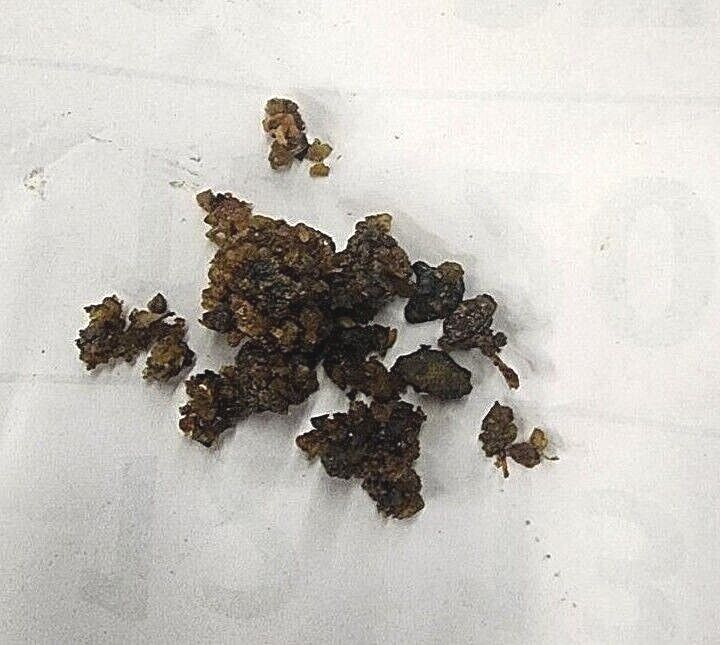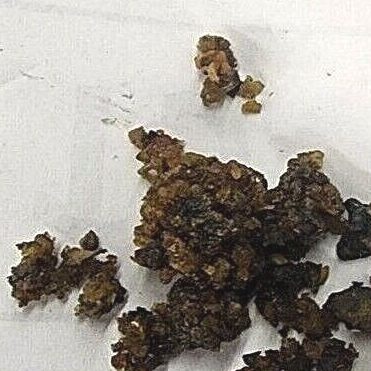Blog
Guggul: The Herb for Inflammation and Cholesterol Health

Guggul, scientifically known as Commiphora wightii, is a remarkable herb that has been revered in traditional medicine for centuries. Often referred to as “Guggal” or “Mukula,” this herb is native to the Indian subcontinent and has gained popularity worldwide due to its numerous health benefits. In this article, we will explore the various aspects of Guggul, including its medicinal properties, preparation methods, and practical applications.
Understanding the Herb
Botanical Overview
Commiphora wightii belongs to the Burseraceae family and is characterized by its small, thorny tree structure. The plant typically grows to a height of about 1-3 meters and produces small yellow flowers. The most notable part of the plant is its resin, which is harvested and used for various medicinal purposes. This resin is often referred to as “guggul gum” and is known for its distinctive aroma.
Geographical Distribution
Guggul is primarily found in India, particularly in the arid regions of the northwestern part of the country. It thrives in dry, rocky terrains and can also be found in parts of Africa and the Middle East. The plant’s adaptability to harsh environments makes it a valuable resource in traditional medicine.

Medicinal Properties of Guggal
Guggul has been extensively studied for its therapeutic properties. Here are some of the key benefits associated with this incredible herb:
1. Anti-Inflammatory Effects
gugul is renowned for its anti-inflammatory properties, making it beneficial for individuals suffering from conditions such as arthritis and joint pain. The active compounds in gugul help reduce inflammation in the body, providing relief from discomfort.
2. Cholesterol Management
Research suggests that it may play a role in managing cholesterol levels. It has been shown to lower LDL (bad cholesterol) while increasing HDL (good cholesterol). This property makes it a potential ally for cardiovascular health.
3. Weight Management
For those looking to manage their weight, this herb may offer support. Some studies indicate that it can aid in weight loss by enhancing metabolism and promoting fat oxidation.
4. Thyroid Support
gugul has been traditionally used to support thyroid function. Its ability to stimulate the thyroid gland can be beneficial for individuals with hypothyroidism or low thyroid hormone levels.
5. Antimicrobial Properties
The resin of gugul exhibits antimicrobial activity against various pathogens, including bacteria and fungi. This makes it useful in treating infections and supporting overall immune health.
How to Prepare Homemade Gugul
Creating your own guggul preparation at home can be a rewarding experience. Here’s a simple method to make its”extract:
Ingredients Needed
- Guggul resin (available at herbal shops)
- Water
- Honey (optional)
Preparation Steps
- Resin Collection: If you have access to Commiphora wightii, carefully collect the resin from the tree.
- Boiling: In a pot, bring water to a boil and add about 10 grams of guggul resin.
- Simmer: Reduce heat and let it simmer for about 15-20 minutes until the resin dissolves completely.
- Strain: Strain the mixture into a clean container using a fine mesh or cheesecloth.
- Storage: Allow it to cool before storing it in a glass jar. You can add honey for sweetness if desired.
- Dosage: Take one tablespoon daily or as recommended by your healthcare provider.
Practical Applications of Guggul
Guggul has various applications that extend beyond traditional medicine:
1. Herbal Supplements
Guggul is widely available in capsule or tablet form as an herbal supplement, making it easy for individuals to incorporate into their daily routines.
2. Skin Care Products
Due to its antimicrobial properties, guggul is often included in skin care formulations aimed at treating acne and other skin conditions.
3. Aromatherapy
The aromatic resin of guggul can be used in incense or essential oil blends for its soothing properties, promoting relaxation and mental clarity.
Cautions and Considerations
While guggul offers numerous health benefits, it’s essential to approach its use with caution:
- Consultation: Always consult with a healthcare professional before starting any new herbal regimen, especially if you are pregnant, nursing, or taking medications.
- Potential Side Effects: Some individuals may experience side effects such as gastrointestinal upset or allergic reactions.
- Quality Matters: Ensure you source high-quality guggul resin from reputable suppliers to maximize its benefits.
Conclusion
Homemade Guggul (Commiphora wightii) is more than just an herb; it’s a treasure trove of health benefits rooted in ancient traditions. From anti-inflammatory effects and cholesterol management to weight control and antimicrobial properties, this remarkable herb continues to captivate those seeking natural remedies.As you explore the world of herbal medicine, consider incorporating guggul into your wellness routine for its myriad benefits. Whether you choose to prepare it at home or opt for commercially available supplements, always prioritize safety and consult with professionals when needed.Embrace the power of nature with homemade guggul—your journey toward holistic health begins here!

Discover more from Nath Mart
Subscribe to get the latest posts sent to your email.
